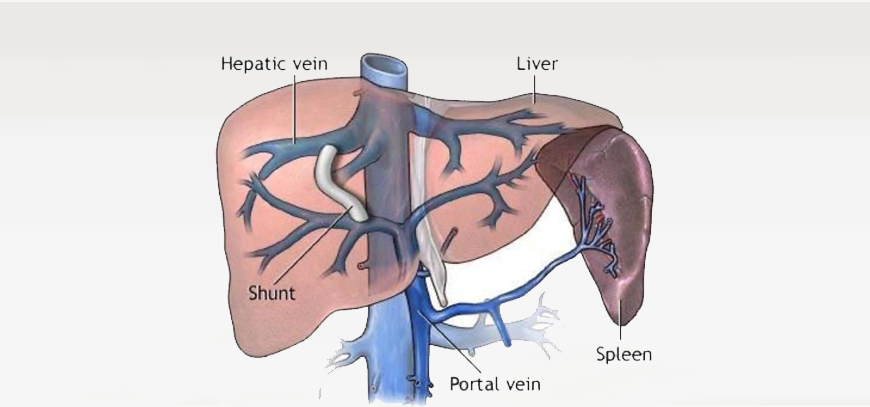Working Time
- Mon-Thu 08:00 – 20:00
Friday 07:00 – 22:00
Saturday 08:00 – 18:00
Contact Info
-
Phone: 92-3324520052
92-3310232883
Ask the Experts
Transjugular Intrahepatic Portosystemic Shunt (TIPS)

A transjugular intrahepatic portosystemic shunt (TIPS) is a medical procedure. During TIPS, a covered metal tube called a stent-graft is used to connect two blood vessels in your liver: the portal vein and the hepatic vein.
What is a transjugular intrahepatic portosystemic shunt?
TIPS is most often done for people who have scar tissue in their liver, often caused by cirrhosis. This scar tissue blocks the flow of blood through the liver from the portal vein to the hepatic vein.
Why do I need a TIPS procedure?
You have a problem with your liver that has caused portal hypertension. This condition causes extra pressure in the group of veins that drain blood from your stomach, esophagus, spleen, and bowel.
What happens in portal hypertension?
Portal hypertension causes 2 main problems: variceal bleeding and ascites.
- Variceal Bleeding
High pressure in the veins in the liver can cause the blood flow in the portal veins to back up. The blood must then drain through new pathways called varices (enlarged veins). When too much blood fills the veins, they weaken, and possibly break. This can cause bleeding. - Ascites Ascites is a buildup of fluid in the abdomen. The increased pressure from portal hypertension stops blood from flowing through the liver. Blood then leaks into the abdomen and causes ascites.
Can TIPS cure these problems?
The stent-graft used in a TIPS procedure creates a new path between the portal vein and hepatic veins. This new path helps keep blood from building up in the liver. This should help with the major problems. But, it does not make your liver work better than it already does.
The only long-term cure for portal hypertension is to have a liver transplant. If your doctor has told you that a liver transplant could help you, you can have TIPS done and still get a transplant later.
-
The procedure usually takes about 2 to 3 hours, but it can take longer.
-
Variceal bleeding: There is an 80 to 90% chance that you will not have any more bleeding from the varices (80 to 90 out of 100 patients do not have any more of this bleeding).
How is TIPS done?
-
TIPS is done by an interventional radiologist, a doctor who specializes in procedures that are guided by X-rays or other imaging.
-
Ascites: There is about a 65% chance that your belly fluid will go away or lessen within about 1 month (65 out of 100 patients have this result).
If you have been diagnosed with cirrhosis with symptomatic portal hypertension, know that a medical management is not your only option. Our IR physicians at IRCC Pakistan are specialists in treating portal hypertension, a minimally invasive procedure performed at many of our locations.The interventional radiologists and clinical staff at our center combine medical expertise and compassion to guide you through your portal hypertension treatment journey every step of the way, providing symptomatic relief and getting you back by improving your quality of life.

